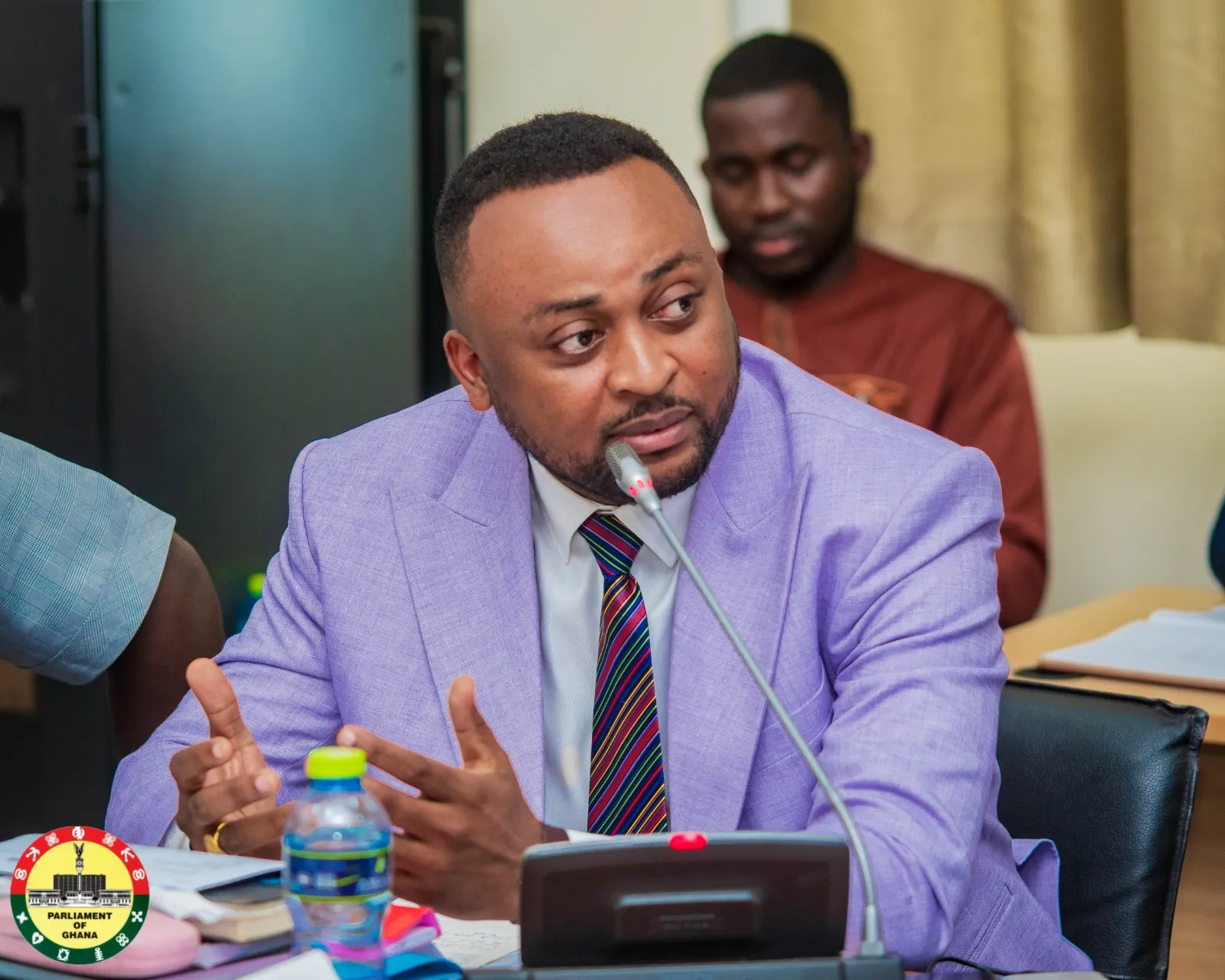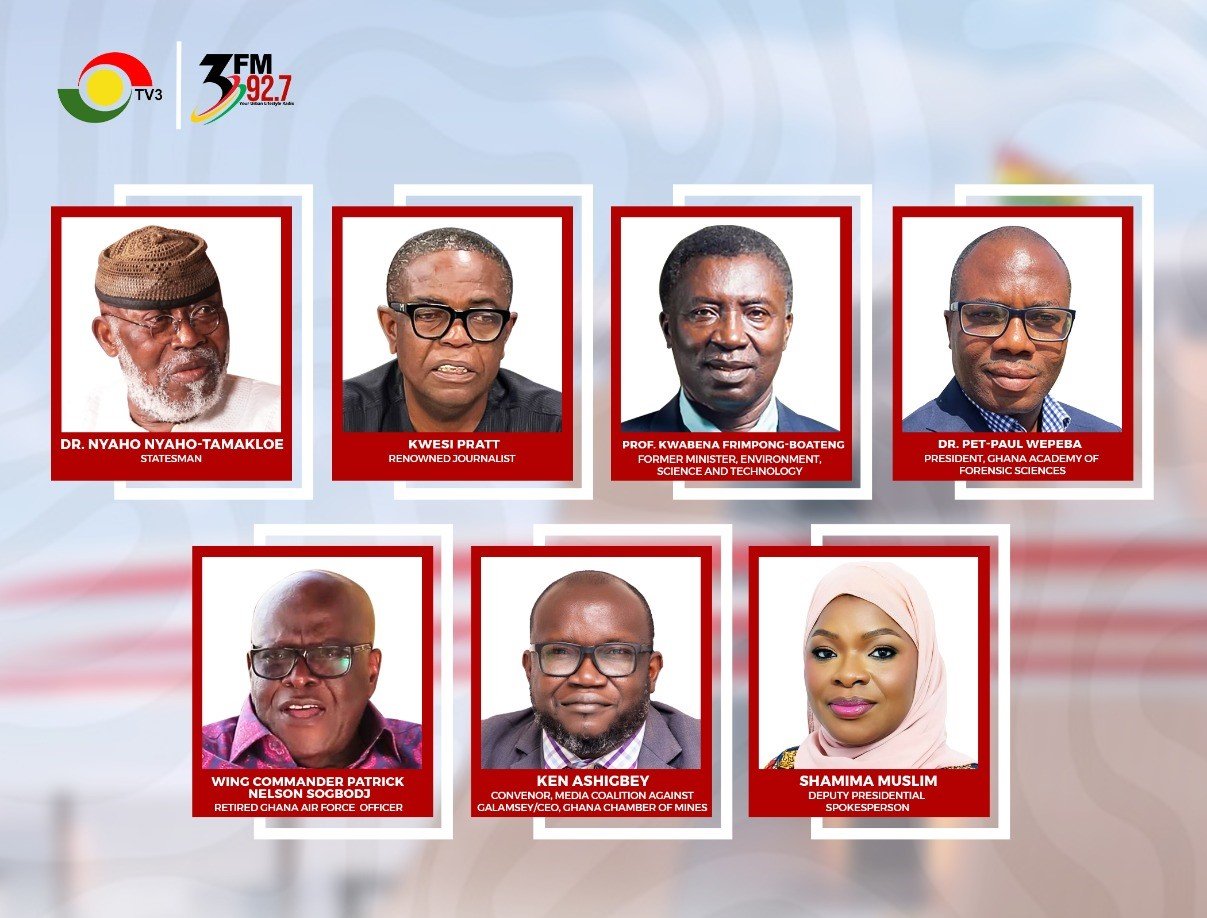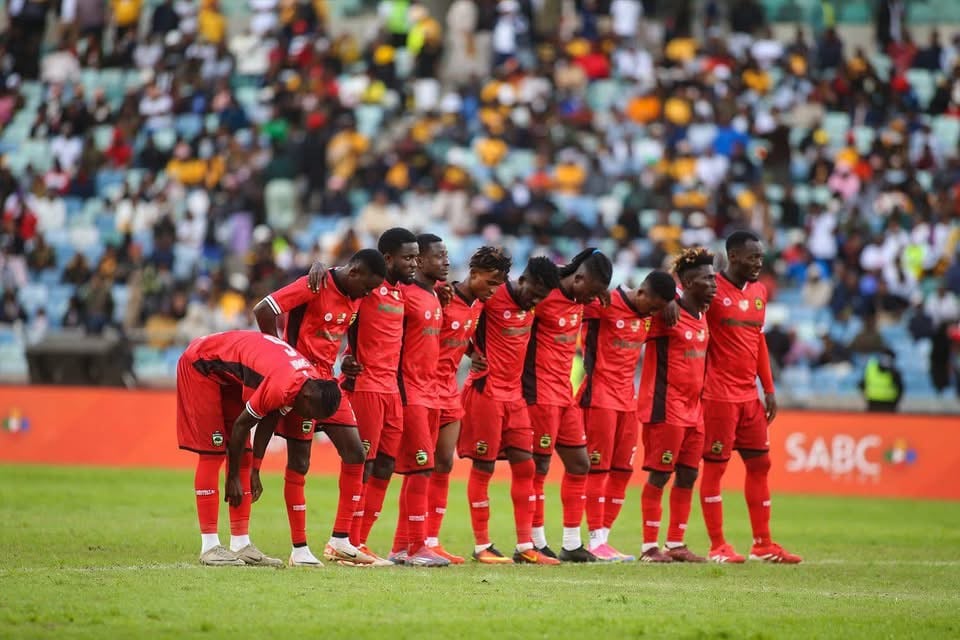-
RIPS organises dialogue on climate change for stakeholders
Accra, Oct. 31, GNA – Professor Samuel Cudjoe, Director of Regional Institute of Population Studies, University of Ghana (RIPS) on Wednesday noted that managing climate-related risks in coastal environments especially in urban communities is now a subject of sharp scrutiny. He however said lack of comprehensive framework to manage such risks has aggravated the impact. The country, he said has been highly urbanised with more than 50 per cent of the population living in urban areas. Prof Cudjoe said about 25 per cent of the people live in coastal urban areas with a land area of about 15.5 square kilometres. Prof Cudjoe made the observation at a day’s National Policy Dialogue for stakeholders on Coastal Climate Risk in Urban areas in Accra, with support from the Climate Development Knowledge Network. The policy dialogue w...
Ghana News Agency 31st October 2012 -
Lets’ amend the Right to Information bill now - Akoto Ampaw
Accra, Oct. 31, GNA – The Right to Information bill currently before Parliament has several fundamental defects which would become obstacles to citizens’ right to accessing information should the bill be passed out without the necessary amendment. “The bill, when passed into law, will be a tangent horse. It is a bad bill that needs to be amended before it is passed into law”, Mr Akoto Ampaw, Steering Committee Member, Coalition on the Right to Information, Ghana said on Wednesday during a meeting with the Editors Forum. The meeting was to enable the two bodies to deliberate on the RTI bill and also for the Coalition to brief newsmen of the status of the bill. Mr Ampaw explained that some of the tenets in the draft bill will rather delay the period of time people could apply and access information they require, which could take between six months or even a year. People will also have to pay a fee for applying for information and be surcharge for other expenses like the number of days an Information Officer would use in looking for the information for applicants. Another flaw in the bill is the issue of exemptions, which allows other vital information bordering on the presidency and other areas to be concealed from public even upon request. Mr Ampaw said the provisions in the bill that sought to give the Commission on Human Rights Administration and Justice (CHRAJ) the mandate to implement the RTI Bill when passed into law was not the best. He said giving CHRAJ the mandate was not the best, we need to set up an Independent Commission, “to ensure that we have dedicated public organ that will train information officers and also develop guidelines as to how the law could be applied or interpreted.” He said all those issues had been raised by both civil society and members of the Coalition to the Parliamentary Select Committee handling the Bill but it had been given any serious regards. He blamed the New Patriotic Party (NPP) and the National Democratic Congress (NDC) governments as well as Parliament for their reluctance over the past two decades in passing the RTI bill. Ms Ajoa Yeboah-Afari, Chairperson of the Editors Forum, Ghana, commended the Coalition for their commitment in ensuring that Ghana has such an effective Law that would deepen the nation’s democracy. She said the free flow of information was a component of a free media and society as well as a weapon to fight corruption. She asked the media to join the struggle in ensuring that the content of the bill were amended to the suit required and acceptable norms and also help push for its early passage. GNA...
Ghana News Agency 31st October 2012 -
Ghana needs better coordination in fight against corruption
Accra, Oct. 31, GNA - Mr. Charles Ayamdoo, Director of the Anti-Corruption Department of the Commission on Human Rights and Administrative Justice (CHRAJ) on Wednesday said Ghana needs better coordination in the fight against corruption. "We in Ghana have used the multi-agency approach in dealing with corruption. What we need is better coordination between these agencies.” Mr. Ayamdoo made this known to journalists at a Round Table Forum on the Review of Implementation of the United Nations Convention Against Corruption (UNCAC) in Ghana. He said UNCAC was a comprehensive international treaty on anti-corruption, which focused on prevention of corruption, law enforcement, asset recovery and international cooperation, "which weaves in well with our national goals". Mr. Ayamdoo said as a signatory to UNCAC, it was the country's aim that within ten years, the public would generally reject corruption, whilst public and private institutions would be characterized by efficiency, accountability and transparency. He said the media, civil society organizations and individuals would be involved towards achieving "this goal". Mr. Ayamdoo said as a member state of the UNCAC, Ghana would be reviewed in 2013. "We have therefore organized this forum to examine our level of preparedness and fill in whatever gaps we might have noticed, in order to go through a successful review," he said. Mrs. Florence Dennis, Executive Secretary of the Ghana Anti-Corruption Coalition (GACC), said "there is the need to fit UNCAC into our own anti-corruption measures". She said once this was done, the country would not only be aiming at going through a successful review by UNCAC, but also, would be effectively ridding itself of corruption and all its negative effects. The UNCAC came into force in 2005, providing the opportunity for countries to collectively fight against corruption. The UNCAC assessment process is to stimulate broader national involvement in anti-corruption efforts, encourage inter-institutional dialogue and cooperation, and provide policy makers with detailed information and analysis on the state's anti-corruption efforts. Organized by CHRAJ and the GACC, the day's forum was attended by 55 participants from the public and private sector institutions, civil society and development partners among others. Captions, A day’s forum on Review of implementations of United Nations Convention Against Corruption (UNCAC) in Accra. GNA...
Ghana News Agency 31st October 2012 -
Secret recordings in politics worrying - FOSDA
Accra, Oct. 31, GNA - The Foundation for Security and Development in Africa (FOSDA), a civil society organisation that examines causes of conflicts has condemned the strategies being employed by some political parties in their quest to win or hang onto political power in the upcoming general elections. A statment issued by FOSDA and signed by Mr Abubarkar Siddique, Communications Officer on Wednessday said the creeping use of secret recordings in Ghana’s political landscape to score political points was worrying. It said in as much as it endorses the rights of individuals to free expression, it behoves on the leadership of political parties “to tread on the path of caution and exhibit political maturity in their attempt to win the hearts and minds of Ghanaian electorates.” While acknowledging the fact that secret recordings have sometimes made a huge and needed difference in both political and crime circumstances, it is essentially a free speech issue in an arena in which public figures would always need to be on guard about what they say and who they say it to. "The contents of the messages and the intents of these secret recordings, which are alleged to have being made by such obviously big political shots with huge followers, have the potential of undermining our institutions of state" it said. The introduction of secret recordings in our political scene, the statement added, also has the potential of suppressing individual’s right to speak openly on their thoughts on issues of national importance without the fear of being recorded. "We at FOSDA believe that this strategy of secret recordings could sway the focus from real manifesto messages and decent campaigning.” The country has in recent months witnessed many secret recordings of public figures mainly made of officials of the New Patriotic Party (NPP) and the National Democratic Congress (NDC). Some of those who have being alleged to have been caught on tape include Baba Jamal, Deputy Minister of Tourism, Yaw Boateng Gyan, National Organiser of NDC, Maxwell Kofi Jumah, Member of Parliament for Asokwa and Mr Anthony Abayifa Karbo, immediate National Youth Organiser of NPP. FOSDA therefore called on the security apparatus of the state to step up its already good works to investigate the veracity of all secret tapes to put these matters to rest. GNA...
Ghana News Agency 31st October 2012 -
GJA/GBC TV debate starts on November 5
Accra, Oct. 31, GNA – The Ghana Journalists Association (GJA) in partnership with the Ghana Broadcasting Corporation (GBC) is to start a new television debate programme dubbed: “The Case of the Manifesto.” The GJA/GBC TV debate would start from Monday November 5 on Ghana Television and would feature spokespersons and representatives of all the political parties contesting the December general election. Mr Affail Monney, Vice-President, GJA who announced this in Accra on Wednesday said the programme would be aired within the four Mondays in November. The various representatives would be allowed to speak on four thematic areas of Education, Health, Food Security and Energy, which would include the oil and gas sector. He explained that the programme is one of the interventions by GJA “Using the Media to Enhance the Transparency and Credibility of the 2012 Elections”. The GJA Vice-President said since Article 162 (5) of the Constitution enjoins the Ghanaian media to demand accountability from public office holders and the Association believes that the media need to subject the manifestos of the political parties to critical interrogation. That, he said would help the Ghanaian electorate to make informed choices...“Such exercise will help further deepened democracy by promoting issue-based campaigns”. He said the debate would be broadcast from 000 hours and 1200 hours every Monday and would be telecasted on November 5, 12, 19 and 26. Mr Kabral Blay Amihere, Chairman, National Media Commission who launched the programme reminded the media of their historic roles in ensuring free, fair and peaceful elections. He asked the media to be guided by their moral obligations to give fair coverage to all political parties to ensure equity and accurate reportage. Mr Akwasi Afriyie Badu, Chief Executive Officer, KAB Governance Consult said the programme was initiated and carried out during the 2004 election year and it is being continued because the impact it could have on the electioneering. He also reiterated the point that journalists should provide a level-playing field for all participating candidates in the elections. The GJA/GBC TV debate project is being facilitated by KAB Governance Consult and funded by STAR-Ghana a multi- donor pooled funding mechanism funded by DFID, DANIDA, EU and USAID to increase the influence of civil society and Parliament in governance. GNA...
Ghana News Agency 31st October 2012 -
Ghana launches Action Plan to implement Security Council Resolution
Accra, Oct. 31, GNA - Ghana on Wednesday launched a National Action Plan for the implementation of the United Nations Security Council Resolution 1325 on Women, Peace and Security (GHANAP 1325). The 60-page document, which was developed by the Ministry of Women and Children’s Affairs (MOWAC) in collaboration with stakeholders, fulfils national as well as international obligations with regard to the implementation of the UN Security Council Resolution 1325 (UNSCR 1325), which was adopted in October 2000. The Resolution was however based on the UN’s recognition of the international needs, rights, experiences and roles of women in areas of armed conflict, peacemaking and peace keeping. It also provides for the active participation of women in all aspects of peace negotiations, peace building and post conflict reconstruction. Mrs Juliana Azumah-Mensah, Minister, MOWAC, who launched the document, said by the event, Ghana is now included in the directory of African countries that have national action plan for the implementation of UNSCR 1325. She said the document is expected to serve as the country’s specific action plan for the implementation UNSCR 1325, which requires an increased representation of women in all decision-making levels in national, regional and international institutions. It also seeks to put in place mechanisms for the involvement of women in the prevention, management and resolution of conflicts. “More importantly, UN Member States were called upon by the Security Council to adopt a gender perspective when negotiating and implementing peace agreements and to ensure that the rights and protection of women and girls enshrined in international law are duly respected,” she said. Mrs Azumah Mensah explained that Ghana’s Action plan focuses on the three pillars of Participation, Protection and Prevention. Its objective is to ensure the full responsibility and active participation of women in conflict prevention, resolution, peace negotiation, mediation, crisis and security management at all levels of the Ghanaian society. The document would ensure that the rights, interests and special needs of women and girls are integrated in policy formulation and implementation, contributing to reduce conflict and the eradication of violence against women and girls in both private and public spheres. She said effective implementation of GHANAP 1325 would lead to an increase in the number of women in leadership positions in security sector institutions, their participation in the promotion of peace and resolution of conflicts, particularly, by supporting local peace initiatives of women. It would in addition prevent gender-based violence and protect the needs and rights of women and girls within the scope of peace missions, humanitarian operations and positions in the international UN and African Regional and Sub-Regional organisations. GHANAP 1325 will therefore ensure a coherent approach to the implementation of UNSCR1325 and the promotion of a gender perspective in Peace and Security. The National Action Plan consolidates all efforts to enhance women’s position and role as decision-making in conflict prevention, crisis management and peace building activities. The Minister called for active collaboration between MOWAC and other key Ministries including the Ministry of Foreign Affairs and Regional Integration, Ministry of Defence and the Ministry of the Interior. She said mechanisms such as monitoring and evaluation, reporting and communication strategies has also been developed and would be employed as cross-cutting issue for each of the three pillars. She emphasised that the successful implementation of GHANAP 1325 would largely depend on the security sector institutions and Ghanaians. In a speech read on his behalf, Mr William K. Aboah, Minister of the Interior, noted that although Ghana has not experienced any armed conflicts on a large scale, there has been some violent and deadly inter-ethnic conflicts in the country, which have adversely affected many people especially women, children and the vulnerable. He said Ghana has however played very significant roles in the maintenance of international peace and security both under the auspices of the UN and the African Union, adding that “our action plan should therefore be informed by our local as well as international experiences”. He cited the establishment of the Domestic Violence and Victim Support Unit of the Ghana Police Service and the increase in the proportion of women in regards to recruitment, retention and career advancement of women in the security services as some major steps to ensure women’s participation in peace making and conflict resolution. Mr Aboah commended MOWAC and all who worked hard towards the development of the document and gave the assurance that the Ministry is ready to partner MOWAC and others to ensure peace in the country especially, before during and after election 2012. GNA...
Ghana News Agency 31st October 2012 -
CAMFED provides scholarships to 16,600 girls in 2012
Tamale, Oct. 31, GNA – The Campaign for Female Education (CAMFED), a non-governmental organization is supporting a total of 16,600 female students across four regions of the country in 2012 by providing them with scholarship packages, uniforms and footwear to ensure their development. The package, which also includes notebooks, sanitary pads, soap and dry food rations, would guarantee the education of the beneficiaries, who were from less privileged homes and deprived communities to gain access to quality education to transform their lives. The support was also to ensure the retention rate of 98 percent for Junior High School in beneficiary communities and 99.9 percent for the Senior High Schools for girls on the CAMFED programme. Mrs. Dolores Dickson, Executive Director of CAMFED-Ghana disclosed these in Tamale on Wednesday during the opening ceremony of the CAMFED 2012 Annual General Meeting of the NGO, which brought together stakeholders of the organization. The AGM, which was on the theme; “Driving up educational performance: our impact as stakeholders” brought together District education Committees, CAMFED alumni (CAMA), Mother Support Groups, teacher mentors and some Directors of the GES to take stock of the past programmes and achievements. Mrs. Dickson said the successes of the organization could not have been possible without the hard working staff and stakeholders and commended them for their dedication, adding that, “As stakeholders in education, it is essential for us to do self-reflection at some point to see how our actions are impacting on quality education”. She said the year under review saw the continuation of the annual science, mathematics and technology camps, saying that, more females under the CAMFED sponsorship had progressed from second circle to the tertiary level. Mrs. Dickson however lamented that the NGO due to its good works, had attracted numerous applicants and was struggling to cope with the demands for tertiary education support against the backdrop of increasing tertiary fees resulting in cutting down the numbers. Mr. Charles Atia, Head of Operations at CAMFED-Ghana said the NGO has grown since 2008 with its operations extending to four regions and 30 districts, from the initial one region and eight districts. He said the staff strength had also improved from only five to 28 in 2012. He said the funding had also grown from 609,587 dollars in 2011 to 6,196,990 million dollars in 2012, which enabled it to increase its partner schools from 242 in 2008 to 716 in 2011. He mentioned The MasterCard Foundation, DFID Ghana, Google, Credit Suisse, Craig Silverstein and Marple Trust Fund as the donors. Mr. Atia said 1,184 businesses have been set up by young women with seed capital from CAMFED whilst many others had received training in business enterprises. GNA...
Ghana News Agency 31st October 2012 -
NPP worried about distribution of cutlasses in Nadowli West
Kaleo (UW), Oct. 31, GNA – The New Patriotic Party (NPP) campaign team in the Nadowli West constituency has expressed concern about an alleged distribution of cutlasses to National Democratic Party (NDC) sympathizers in the constituency by Mr. Alban Bagbin, the Minister of Health. The campaign team said they see a bad motive behind Mr. Bagbin’s gesture, since the farming season was over and called on the security agencies to conduct an impartial investigation into the distribution of the cutlasses to the NDC loyalists, “ when we are close to the December elections.” Mr. Bagbin, who has been the MP for the constituency since the fourth republic began in 1993, is seeking re-election for a sixth term. According to the NPP campaign team the distribution of the cutlasses to the NDC loyalists was tantamount to arming NDC activists to possibly harass and intimidate NPP supporters during and after the polls. “The NPP wonders why the Member of Parliament did not distribute the cutlasses at the beginning of the farming season but rather at a period that farmers have finished clearing their farms”. In their statement, they recognized that farmers in the constituency needed farm inputs and tools such as cutlasses and tractors but questioned why the MP allegedly hid his tractors in the Sissala East District and preferred giving out cutlasses during electioneering campaigns. They reminded the Upper West regional peace council of the crucial role they had to play in both intelligence gathering as well as taking concrete actions to reassure all stakeholders, particularly opposition parties that no candidate would engage in any action that would be detrimental to peace. The NPP team also accused Mr. Bagbin of laying claims to development projects executed by organizations, including non-governmental organizations like World Vision International and Sustainable Integrated Development Services centre (SIDSEC) in the area. They also accused the Nadowli District Assembly of assisting the MP to take undue advantage of the Assembly’s interventions to create the impression that his performance as MP was good. GNA...
Ghana News Agency 31st October 2012
-
Oil palm sector faces sustainability crisis, as climate, market shocks persistNewsYesterday @ 05:00
-
Abdul Karim set to arrive in Accra ahead of Hearts of Oak moveGhana Premier League3 days ago
-
Explosive winger Kofi Asante joins Aduana FC on a three-year dealGhana Premier League4 days ago
-
Raganr Ache shakes off knee scare returns strong in trainingLatest News4 days ago
-
Fidelity Bank launches third annual Sustainability MonthBanking & Finance3 days ago
-
FBI extradites three Ghanaian nationals over $100 million romance scamCrime17 hours ago
-
LIVESTREAM: The KeyPoints – Ghana mourns helicopter crash victimsNews15 hours ago
-
*Road Transport Operators suspend 20% planned fare increaseCrime17 hours ago
-
FDA not out to frustrate businesses – Regional HeadGeneral News15 hours ago
-
2025/26 CAF Confederation Cup: Asante Kotoko drawn against Kwara United in prelimsFootball12 hours ago
-
Signing ex-Man City wizkid Aminu Mohammed was tough - Bechem United PRO, Emmanuel Gyasi AtuaheneGhana Premier League14 hours ago
-
Police foil robbery, arrest one suspectGeneral News15 hours ago
-
Germany partially suspends military aid to Israel over new offensiveAfrica/International15 hours ago
-
Why don’t you speak your mother tongue?Features13 hours ago

















Facebook
Twitter
Pinterest
Instagram
Google+
YouTube
LinkedIn
RSS